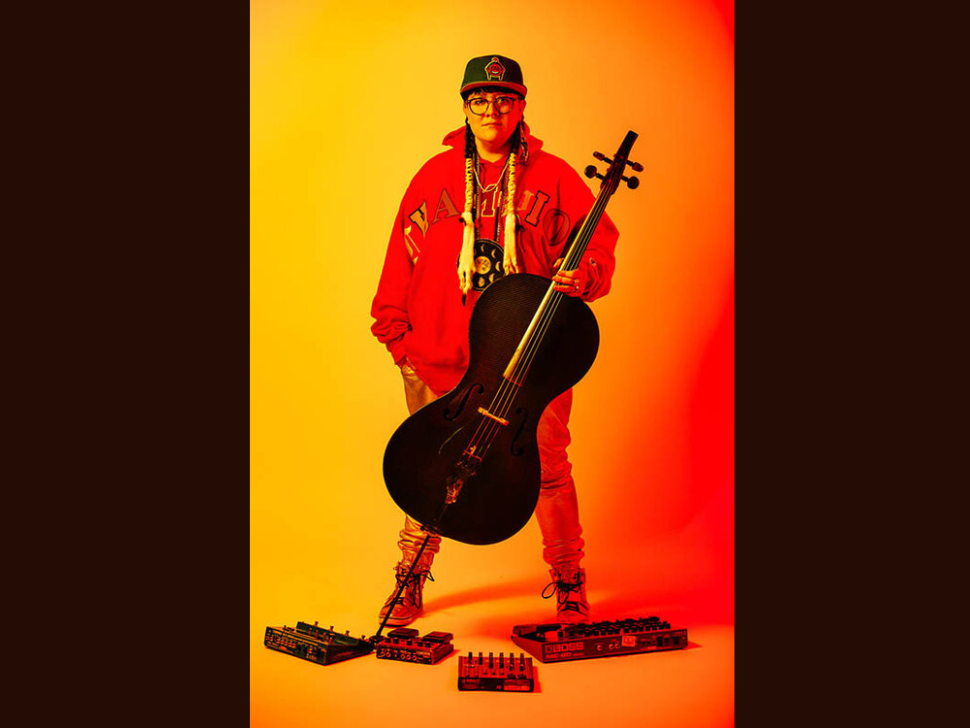Cris Derksen Illuminates Newport with Powerful New Work, First Light
A haunting, hope-filled cello quartet rooted in a rarely told story of American history has just received its world premiere—and at its heart is Canadian composer and cellist Cris Derksen, whose bold, genre-defying music continues to challenge and expand what classical music can be.
Derksen, who is of Cree and Mennonite heritage, was chosen as Composer-in-Residence for the 56th season of the Newport Classical Music Festival. Her commissioned work, First Light, premiered Sunday night at the storied Breakers Mansion in Newport, Rhode Island, performed by the virtuosic Galvin Cello Quartet.
The piece is steeped in history—specifically, the overlooked narrative of Indigenous enslavement in early America. Derksen was inspired by a 1771 advertisement seeking the return of a runaway indentured servant, a boy described as “Indian… pretty light colored.” His name was John Anthony.
“There wasn’t much information, so I used my imagination,” said Derksen in interviews leading up to the premiere. She dove into the history of the local Wampanoag people—whose name means “People of the First Light”—and reimagined the young boy’s escape in the early dawn. The resulting work is a musical meditation on resistance, flight, and fragile hope.
Musically, First Light is a rich and emotionally complex landscape. Derksen weaves together lush, Brahms-like harmonies that blossom outward in thirds with tense, racing passages filled with emotional urgency. Over these textures, a plaintive melodic line sings—a voice of both struggle and strength. As the piece progresses into the “first light of morning,” the music becomes more spacious and pentatonic, evoking birdsong, dewdrops, and the promise of freedom—before concluding in an abrupt silence that leaves the listener breathless.
“I feel like I am representing myself as an Indigenous artist,” Derksen has said. “We are all so different.” And yet in First Light, her singular voice resonates with a universality that speaks across cultures and centuries.
The Galvin Cello Quartet, for whom the piece was written, brought Derksen’s music vividly to life. The ensemble—formed by four cellists from the studio of renowned pedagogue Hans Jørgen Jensen—plays with both youthful passion and refined cohesion. Derksen praised them as “so virtuosic,” and their performance was a clear affirmation of her words.
First Light stood out as the only original, unarranged work on the program—amid a lineup of sparkling arrangements ranging from Vivaldi to Debussy, Paganini to Mussorgsky. While the rest of the concert dazzled with flair and familiar melodies, Derksen’s piece grounded the evening with emotional weight and fresh perspective.
The premiere also comes at a time when classical music institutions are increasingly seeking to engage with underrepresented histories and voices. Derksen’s work doesn’t just participate in that conversation—it leads it. First Light isn’t just a beautiful piece of music. It’s a reckoning, a remembrance, and a reimagining.
